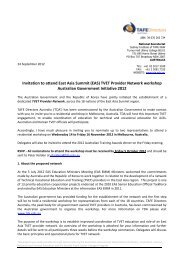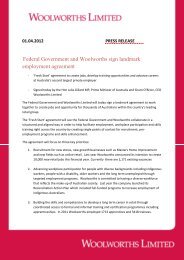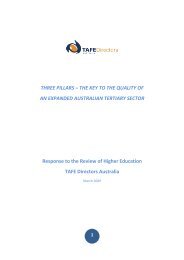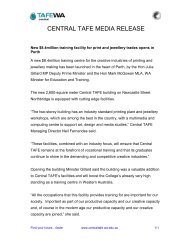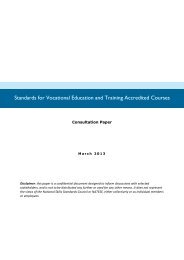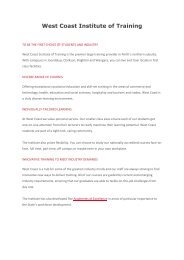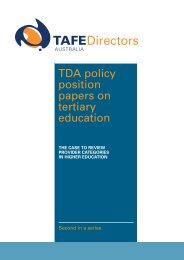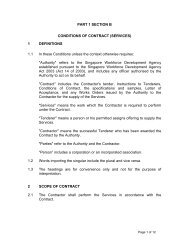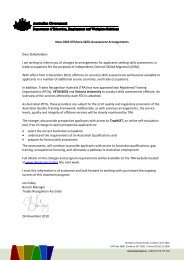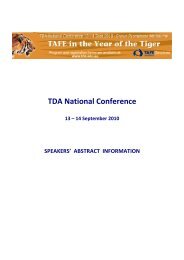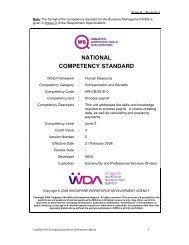Occasional Paper - TAFE Directors Australia
Occasional Paper - TAFE Directors Australia
Occasional Paper - TAFE Directors Australia
Create successful ePaper yourself
Turn your PDF publications into a flip-book with our unique Google optimized e-Paper software.
20<br />
The ferocious tiger:<br />
What should quality mean for<br />
a 21st century <strong>TAFE</strong> institute<br />
Robin Shreeve<br />
CEO, Skills <strong>Australia</strong><br />
Robin Shreeve has worked in the skills<br />
sector for over 30 years in <strong>Australia</strong> and<br />
England. He is currently the Chief Executive<br />
of Skills <strong>Australia</strong>, an independent body<br />
advising the <strong>Australia</strong>n Government on<br />
workforce development and workforce skill<br />
needs.<br />
Prior to this Robin was Principal of a Central<br />
London College of Further and Higher<br />
Education. From 1989 to 2005 Robin was<br />
Deputy Director-General for <strong>TAFE</strong> in the<br />
NSW Department of Education and<br />
Training. From 1995 to 2000 he was<br />
Director (Principal) of the North Coast<br />
Institute of <strong>TAFE</strong> NSW. Robin was<br />
foundation Chair of the Board of <strong>TAFE</strong><br />
Global Pty Ltd, an international project<br />
management company set up following<br />
<strong>TAFE</strong> NSW’s success as the official training<br />
partner for the Sydney 2000 Olympic and<br />
Paralympic Games.<br />
Many <strong>TAFE</strong> institutes assert that they are quality<br />
or even world class providers. But how can they<br />
publicly demonstrate this when there is little<br />
outcome data publicly available at the individual<br />
provider level to support these claims<br />
External bodies such as the Organisation for<br />
Economic Co-operation and Development (OECD)<br />
confirm that at the systemic level the <strong>Australia</strong>n<br />
tertiary sector delivers vocational training that is<br />
valued by its industry and individual customers<br />
(Hoeckel et al. 2008). National and State Training<br />
Awards recognise that there are many exemplary<br />
vocational education and training (VET) providers<br />
across public, private, community and enterprisebased<br />
Registered Training Organisations (RTOs).<br />
However, recently there has been closer public<br />
scrutiny on the overall quality of the VET system as<br />
a result of media reports on the poor experiences of<br />
some international students. <strong>Australia</strong>n VET is being<br />
challenged to demonstrate quality of the whole<br />
system in order to drive excellence and restore public<br />
confidence.<br />
An expression of action on this concern has been<br />
the agreement to establish a new National VET<br />
Regulator that is likely to be operational from 2012.<br />
While this is a very welcome development, more<br />
needs to be done.<br />
The issues affecting quality in the current VET system<br />
include inconsistent regulation, variable assessment<br />
practices and insufficient transparency. While there<br />
are undoubtedly many good VET providers operating<br />
across <strong>Australia</strong>, it is difficult to demonstrate the<br />
public value, or the value to employers, of the<br />
breadth of activities undertaken by the VET sector<br />
without evidence-based information in the public<br />
domain. For example, individual providers maintain<br />
internal records and data of various performance




